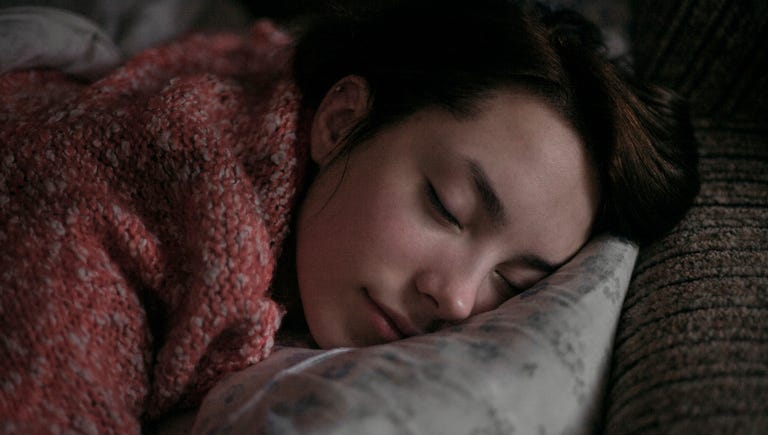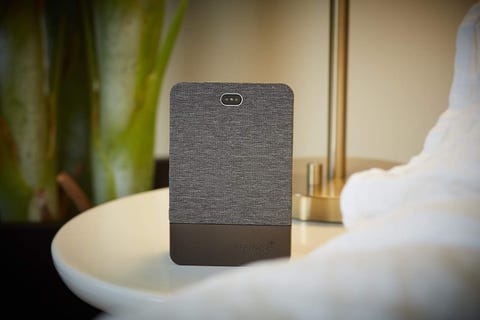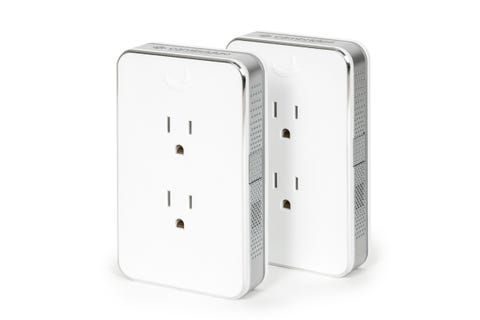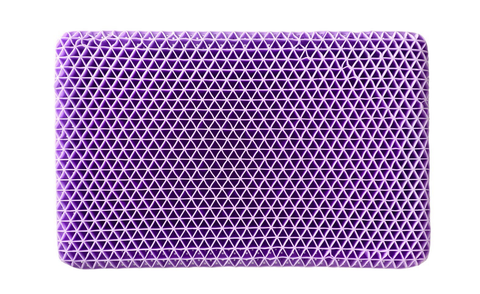How to Hack Your Sleep
You could spend a lot of money on gadgets to help you sleep better. Should you?
Kevin Dupzyk
Getty Images
If one more person brags to me about how little sleep he got, I’m gonna pour Red Bull in his eye sockets. There is something so American—not in a good way—about going on about how you only get four hours of sleep and you’re totally fine. Under-sleeping is stupid. Cancer, diabetes, Alzheimer’s, obesity—they say sleep deprivation can lead to all of these things, and if they’re right about even one of them, stay in bed.
Me? I think I’m pretty normal, as sleep goes. I never seem to bag eight hours on workdays, and I don’t feel that bad. Give me a hot shower and a hot coffee and I’m good. I’ll catch up on the weekend. That’s why the new technology coming out of the sleep-better industry—which is a $40 billion industry—fills me with fear. In my mind, something like a sleep tracker is the beginning of a slide into WebMD-laced hypochondriacal doom. And the more you read about the many nuances of sleep, the more you wonder how a FitBit could possibly offer meaningful information about it. So I started talking to scientists.
Sleep is still a nebulous concept, they told me. There’s not even a hard definition of what sleep is. The best you can do, if you want to figure out if someone is sleeping, is measure as many variables as possible—how much they move, how much they breathe, brain waves—and make an educated guess. If you see a doctor for a serious sleep problem, you’ll probably be put through an expensive test called polysomnography that measures all that, which explains why my panel of experts was as skeptical of bracelet sleep trackers as I am. But they did tell me about the latest generation of sleep technologies, which are more sophisticated—and which they convinced me to try.
Sleep Trackers

The SleepScore Max analyzes your sleep patterns and delivers data every morning to your smartphone.
Sleepscore
Bedside trackers sit on your nightstand and use radar to track movements as fine as individual breaths. I asked Hawley Montgomery-Downs, a professor at West Virginia University who tests sleep trackers (and who has a fantastic name), if that actually works. She said one consumer device, the ResMed S+, has shown promise in clinical tests. The new SleepScore Max uses S+ technology and adds software from a sleep expert formerly of Apple’s Health team. It’s beautifully simple: Rather than confusing charts, it offers a numerical rating of overall sleep quality—and coaching to help raise it.
I wanted to get close to polysomnography at home. That led me to EverSleep, a bracelet that measures movement coupled with a finger clip that tracks pulse and blood oxygen. Add a smartphone’s microphone to listen for snoring, and EverSleep can spot signs of sleep apnea, which is associated with agitation, gasping, and low blood oxygen. I tested EverSleep in beta and it was a little buggy, plus it took a while to get used to the clip. But if I were worried about apnea, it seemed a good way to get closer to a clinical test.
Sleep Aids

Nightingale adds a white noise generator to any outlet in your bedroom.
Nightingale
After I talked to Douglas Kirsch, president of the American Academy of Sleep Medicine, I also wanted to see if technologies could make my time in bed more restful. He told me the most interesting new consumer devices for inducing or improving sleep are more attuned to how the body works than older devices.

2breathe
I tried two. The first, Nightingale, is a highly capable white-noise generator. It creates “sound blankets” tuned for the sensitivities of the ear, masking frequencies common in disruptive noises (talking, water running, traffic, etc.). It can be adjusted for reflective and absorptive rooms—hardwood versus carpet, say—of different sizes. Or it can just play whale sounds.
The second, 2breathe, is a sleep-inducing meditation device. Its app plays new-agey music and cues breathing. The gadget, a sensor the size of a headlamp, clips around the waist to track when your breathing is synced, and adjusts as necessary. There’s actually a scientific angle to this: Over the course of a session, 2breathe decelerates your rate of breathing to match the way respiration slows during sleep. I was ready to mock it, but it worked.
Pillows

Purple
A good pillow aligns your spine for sleep. I tested two approaches. The Purple pillow ($100) is a one-size-fits-all lattice of a rubbery material called a gel elastomer. Its rigid edges support your neck but it collapses in the center to cradle your skull. It’s also heavier than any pillow I’ve ever encountered and smells weird. But that fades, and it was comfortable—though best for a back sleeper.
I’m a stomach sleeper, so Bedgear custom-fit me for a Dawn 1.0 Performance pillow ($200), a thin slice of foam (to avoid a kink in my neck) wrapped in cooling fabric that actually worked. Comfy. I also inquired with two of New York’s finest hotels, the Mark and the Pierre, about traditional pillows. Both use Downlite Hotel pillows containing duck feathers and goose down. Starting at $50, you don’t have to be able to afford the penthouse suite to buy one.
Conclusion
All in all, I tested $1,129 worth of sleep technology. At Montgomery-Downs’s suggestion, I also took a simple, free, online reaction-time test each morning when I awoke. (I used the one at healthysleep.med.harvard.edu/need-sleep, a driving game that has you change lanes to avoid obstacles that suddenly appear in the road.) A dip in reaction times after a restless night—or improvement after a few nights of unusually good sleep—might suggest your regular sleep habits are lacking.
My score never significantly rose or fell—not with the sound blankets or the meditation or the tracker-coaching. Which I think means sleep technology is as personal as advice like “get comfortable,” which Kirsch told me is the best advice—along with other standbys like “make the room dark” and “avoid screens.” So if you love your FitBit, the SleepScore Max will probably yield returns. If the neighbor’s rooster wakes you at the crack of dawn, try Nightingale. Me, I make it just fine with the sleep I get. My delusion persists.
Thanks to our sleep experts: Hawley Montgomery-Downs, West Virginia University; Tom Kazlausky, Ambulatory Monitoring, Inc.; Douglas Kirsch, American Academy of Sleep Medicine; Alina Patke, The Rockefeller University.
No comments:
Post a Comment